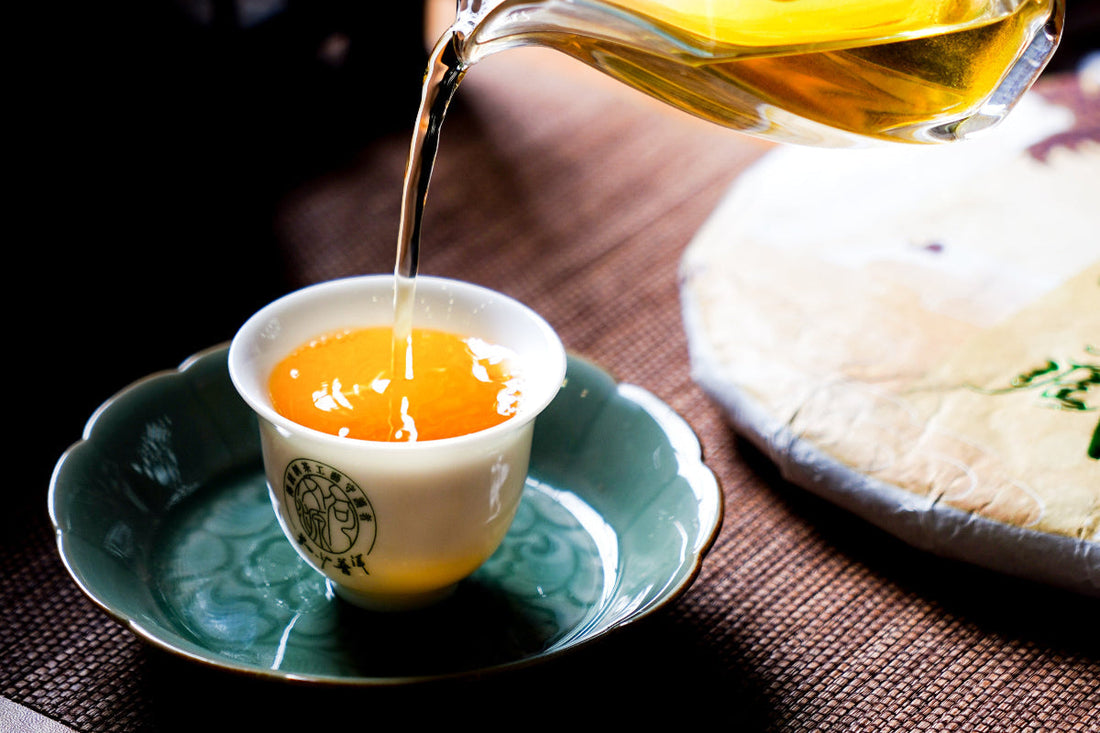
The Unexpected Tea That Helped Me Feel Better After Meals (And Ditch the Soda)
Share
If you’re like me, your days move fast. Between work, takeout, late dinners, and way too much scrolling, it’s easy to end the day feeling… heavy.
AI used to reach for a Coke or a second coffee to “reset” after a meal—but it often made things worse. Then one evening, after a particularly greasy burger and fries situation, a friend handed me a mug of Pu-erh tea.
“Just try it,” she said. “It’s what my grandma always drank after dinner.”
That was my intro to Pu-erh—and I haven’t looked back since.

🍕 It Actually Helps After Heavy Meals
You know that overstuffed, can’t-move feeling after eating pizza, fried food, or anything extra rich? Pu-erh is kind of amazing for that.
This tea is fermented, which gives it a smooth, earthy taste and a natural warmth. It doesn’t feel harsh like some green teas do. It just… settles you.
Now I keep a tin in my kitchen and reach for it after big meals. It’s not a miracle, but I feel lighter and more comfortable within minutes.
🥤 A Way Healthier Swap for Soda or Sweet Tea
I used to be the type who needed something sweet after eating. Soda, sweet tea, juice—whatever was cold and sugary. But since I started drinking Pu-erh, I’ve naturally cut down on all of that.
There’s something satisfying about its rich flavor that doesn’t make you miss the sugar. And it’s caffeine-friendly, too—not too much, not too little.
It’s not about being “perfectly healthy.” It’s about small shifts that actually feel good.
🌿 So Why Does It Feel So Different?
Here’s the thing: Pu-erh is tea—not a beverage trying to act like tea.
Most of the drinks we reach for—energy drinks, flavored waters, bottled “health” teas—are loaded with sugar, artificial flavors, or way too much caffeine. They give you a quick jolt and an even quicker crash.
Pu-erh plays a slower, smarter game.
Its fermentation gives it a mellow edge—less bite, more comfort. And inside those aged leaves? Natural compounds like polyphenols that quietly help your body process rich meals without the crash. Think of it as a tea that works with your system, not against it.
It also has just the right amount of caffeine to gently wake you up without sending your heart racing—and there’s no sugar, no syrups, no weird additives. Just aged tea leaves and hot water.
It’s not here to shock your system. It’s here to support it.
🧘 A Little Ritual That Calms the Mind
I didn’t expect Pu-erh to affect my mood, but it does. Taking ten minutes to boil water, steep the leaves, and just be—no screens, no rushing—has become my version of hitting pause.
It helps me slow down. It gives my mind a reset, especially on those over-stimulated, over-scattered days.
☕ For Coffee People (Like Me)
Look, I still love coffee. But Pu-erh fills a different role. I drink it after meals, in the afternoon, or when I’m trying not to over-caffeinate. It’s warm, grounding, and doesn’t leave me jittery.
Bonus: it doesn’t need milk or sweetener to taste good. Once you get used to the earthy notes, it’s kind of addictive—in the best way.
💬 Thinking of giving Pu-erh a try? Start here.
It won’t taste like your regular green tea or iced black tea. It’s richer, more grounding—almost like it’s been through something (because, well, it has).
My suggestion?
- ✨ One cup after dinner.
- ✨ Go with ripe (shou) Pu-erh if you want something smooth.
- ✨ Don’t overthink the setup—hot water and a mug is all you need.
Tea doesn't have to be complicated. Just thoughtful.
Final Thought
Pu-erh isn’t trendy. It won’t give you a six-pack. But it’s become one of those little things that quietly works in the background of my day.
It helps me feel better after eating. It replaced habits that weren’t serving me. And it gave me a few calm minutes I didn’t know I needed.
If you’re tired of the bloated, burned-out, always-running feeling—this tea might surprise you, too.


